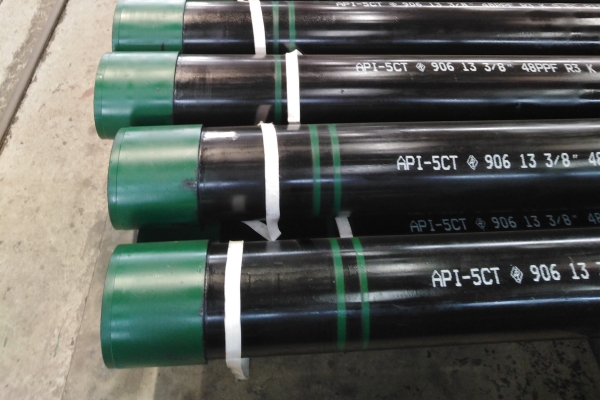Thread defects in oil casing pipes can lead to serious issues in oil and gas operations, including leaks, structural weaknesses, and difficulties in assembling and disassembling equipment. These defects can result from various factors, including manufacturing processes, handling, and environmental conditions. United Steel Industry will talk about some common thread defects in oil casing pipes in this article.

Galling:
Galling is the damage caused by excessive friction and adhesion between the threads when the casing is being made up or broken out. It can lead to thread deformation, reduced sealing ability, and difficulties in connecting or disconnecting casing strings.
Thread Nicks or Burrs:
These are small irregularities or projections on the thread surface that can result from handling, transportation, or storage. They can damage the sealing surfaces, reducing the integrity of the connection.
Thread Flakes or Chipping:
Flakes or chips can occur on the thread surfaces due to machining or wear during use. They can lead to reduced sealing and mechanical strength of the connection.
Thread Crush:
Thread crush is a deformation of the threads that occurs when excessive torque is applied during makeup. This can result in reduced fatigue life and make it difficult to break out the connection when required.
Thread Misalignment:
When threads on one end of the casing do not align properly with the threads on the other end, it can lead to cross-threading and an incomplete or weak connection.
Thread Gaps or Irregularities:
Gaps or unevenness between the threads can cause improper makeup and lead to incomplete sealing and lower connection strength.
Thread Corrosion:
Corrosion can occur on the thread surfaces due to exposure to harsh environments. It can compromise the integrity of the connection and reduce its lifespan.
Thread Deformation:
Thread deformation can result from excessive axial or radial loads during handling or operations. It can weaken the connection and impair sealing capabilities.
Oversized or Undersized Threads:
Threads that are either oversized or undersized can result in poor fit and improper engagement, leading to weak or incomplete connections.
Thread Pitch Errors:
Inconsistent thread pitch can cause connection problems when making up the casing, leading to difficulties in sealing and potential leak paths.
To prevent and address these thread defects, it is crucial to implement proper quality control measures during manufacturing, storage, and transportation of oil casing pipes. Inspection, testing, and maintenance should be carried out to identify and rectify any defects before they lead to operational issues. Additionally, following industry standards and guidelines for thread design and quality is essential to ensure the integrity and reliability of oil casing pipe connections in oil and gas applications.